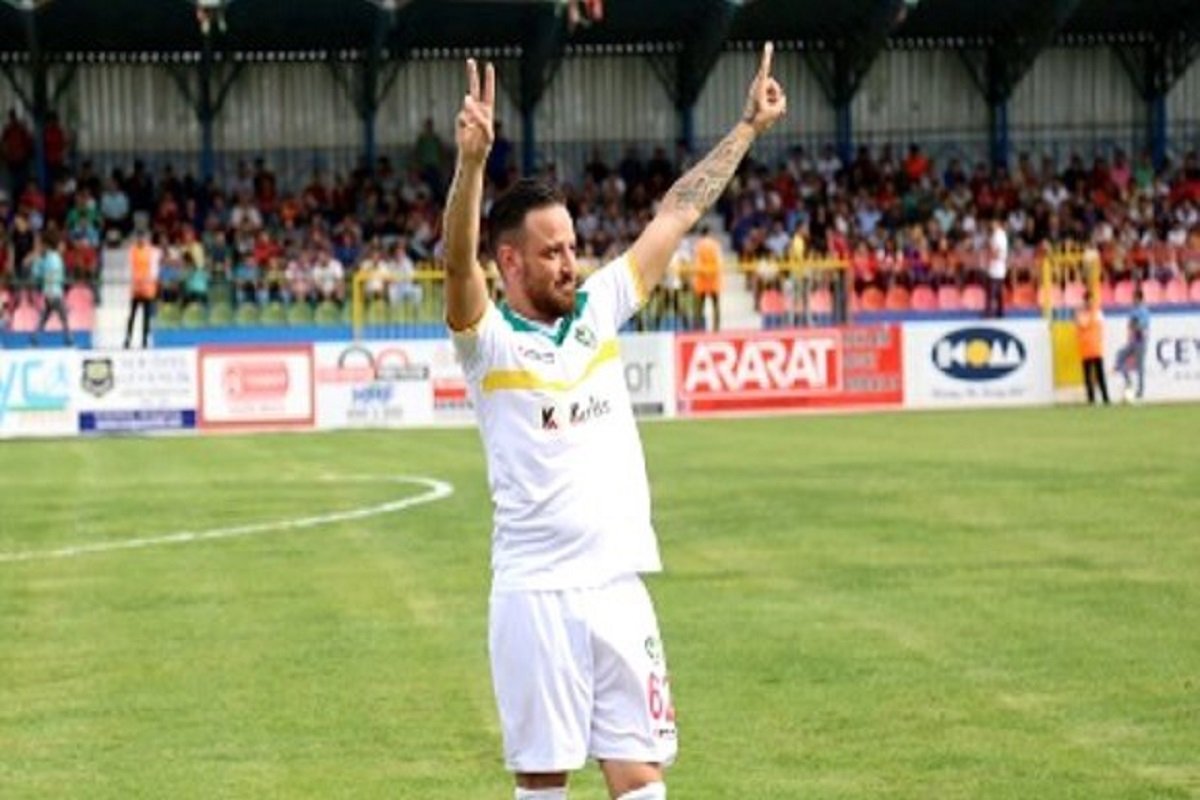Deniz Naki, a Kurdish footballer who has been targeted by the Turkish government led by President Recep Tayyip Erdoğan for his political views in support of Kurdish rights on Wednesday accused Mesut Özil of hypocrisy, according to a report by Kurdistan 24 on Thursday.
In May, Özil and fellow Turkish-German footballer İlkay Gündoğan posed for a photo with Erdoğan during his visit to London, leading to controversy in Germany and criticism by the German Football Association (DFB), which accused the players of involving themselves in propaganda for Turkey’s June elections.
Last week, Özil retired from the German national team citing “racism” and “disrespect.” The 29-year-old Arsenal midfielder added that “not meeting with the president would have been disrespecting the roots of my ancestors,” who he said would be proud of him today. Erdoğan voiced his support for Özil after the controversy and says the “racist attitude” shown towards the player is not acceptable.

Naki noted that he was attacked several times for posing for a picture with Selahattin Demirtaş, the imprisoned pro-Kurdish Peoples’ Democratic Party’s (HDP) former presidential candidate.
After playing for three years in Turkey, he was banished from football in the country for life by the Turkish Football Federation (TFF), who accused him of “ideological propaganda” linked to comments he made on social media in support of the Kurdish struggle in Turkey.
“You are saying that the statements of the DFB are wrong. In Turkey, the career of a football player was ended. A peace-supporting human was branded a terrorist. What is your reaction to this?” Naki said.
Moreover, Naki said that though it was apparently acceptable for Özil to defend his Turkish roots, it was not the same for those who defend their Kurdish roots.
In January, the Kurdish footballer player was shot at while driving on a highway in Germany and later blamed the incident on the Turkish intelligence service. Last April, a Turkish judge gave Naki a suspended jail sentence of 18 months, accusing him of “spreading terrorist propaganda” for the outlawed Kurdistan Workers’ Party (PKK). He denied the charges, saying he only wanted to offer a message of peace in the deadly standoff between the army and Kurdish militants.
“People died. To prevent people from dying, I have called several times for peace,” he said on Instagram. “They were Kurdish children, mothers, and youths who died, Kurdish cities that were destroyed. I didn’t want people to die, I wanted them to live,” he said.
Naki called on Özil to think about this while in Turkey in the future, saying, “Those who will welcome you with open arms on your next trip Turkey are the same people who carried out racists attacks against me. There should be no distinction between fascists, they are the same, in every country.”
“For these reasons, I am calling on you to not only fight against fascism and racism in Germany, but racism of any kind in the world. I call on you to observe the racism against Kurds in Turkey and to also fight this.”

“I congratulate you. You have behaved honourably and pulled off the mask covering racism,” wrote Erdem, a former deputy of Turkey’s main opposition Republican People’s Party (CHP), adding that the fight against racism had to take place on a global scale.
“The two-faced German politicians’ treatment of you for taking a picture with Erdoğan and for being a Muslim is a situation that needs to be combatted,” he said. “However, Erdoğan, who you took a picture with, calling Alevi places of worship ‘revelry houses’ is at least as racist and this must also be fought. If we fight German fascists without seeing this or we fight Erdoğan and do not see German fascists, we are inconsistent.”
Erdem said he was arrested on terror offences as a minority in Turkey while many of those who took part in the coup were protected by their majority identity. “Racism and identity politics are damaging things. Sometimes they are manifested in a German, and sometimes in a president with an almond-shaped moustache,” Erdem said.
Meanwhile, Reinhard Gridnel, the DFB president, said on Thursday that he made mistakes in handling a controversy over Özil’s photo with Erdoğan but rejects accusations of racism. In his first personal response, Grindel said in a written statement that he regretted the federation’s criticism of the photo “was abused for racist slogans,” according to The Associated Press.
“In retrospect, I as president should have said unambiguously what is self-evident for me personally and for us all as a federation: Every form of racist hostility is intolerable and unacceptable.”
Grindel pushed back against being linked with racism, writing: “I reject this emphatically, for the federation and for myself personally.”
Grindel’s statement didn’t address his own future. The 56-year-old former lawmaker with Chancellor Angela Merkel’s conservative party became DFB president in 2016. He has faced calls to resign in recent days from critics who fault his crisis management. No senior German football officials have resigned over the World Cup debacle.
He did, however, underline the importance of winning the right to host the 2024 European Championship. Germany and Turkey are bidding for the tournament, and UEFA’s executive committee will choose the host in September. “The tournament could tell a new football tale, bring children to clubs, bring people even closer together — with and without immigrant roots,” Grindel wrote. “United by football.”
















